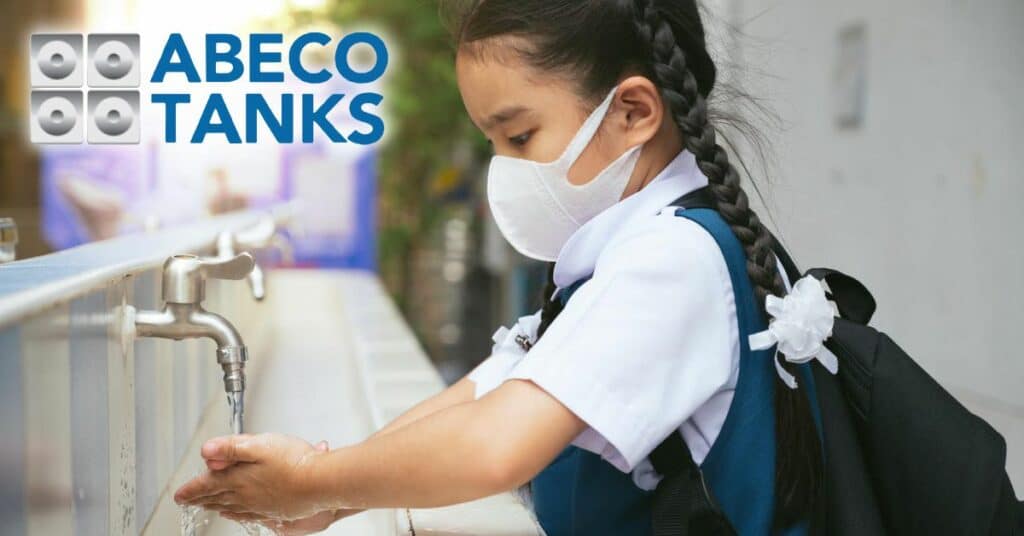24 Apr Water access fears amid Covid crisis
Water access fears amid Covid crisis

With the Covid-19 crisis accelerating in SA, there is growing concern about vulnerable communities who do not have access to a clean, regular supply of water.
To highlight their plight, a group of about 40 members of a community action group protested in Khayelitsha, Cape Town on Wednesday, just a day before SA was to go into lockdown to prevent the spread of the deadly virus.
They expressed their frustration that many informal residents had no access to piped water, as reported by TimesLIVE.
Another article, on GroundUp, expressed residents’ frustration at not being able to follow the recommended guidelines on handwashing in light of the Covd-19 crisis, and the general unsanitary conditions they were forced to live in, with hundreds of community members sharing just a few taps.
March 22, 2020, was World Water Day, yet another reason to highlight the importance of water, and access, or the lack thereof, to a clean, reliable source for billions of people around the world.
It’s estimated that by 2030, more than a third of the world’s population will be living in significant water stress.
SOMBRE WEEK
“After a very sombre week, government and the private sector need to address the challenges ahead due to water scarcity,” says Mannie Ramos, COO of Abeco, the world’s first “bank” for water and a leader in hygienic water storage solutions in Africa.
“Water scarcity is the next big threat we face in the coming months as the coronavirus pandemic spreads, particularly in our country where there is a wide gap between ‘first’ and ‘third’ worlds. Not having access to water to frequently wash hands, could mean the difference between life or death for some.”
Ramos does not welcome calling attention to this fact while South Africans face concerns around safety and their livelihoods, due to Covid-19.
“This issue has to be voiced,” he says. “There is a very real threat to those living in areas where water is not accessible. In addition, the drain on existing water resources which are already in crisis, needs to be addressed in our coronavirus crisis planning, sooner rather than later.”
PIPED WATER
According to the 2018 General Household Survey from Statistics SA, while there were improvements to the supply of tap water inside dwellings in regions like Western Cape and Gauteng and the Western Cape, less than half of South Africans have access to piped water in their houses.
Nearly 50% of others rely on communal sources.
Ramos believes there are signs that water scarcity is increasing, citing recent news reports about water shortages in the Eastern Cape, a KZN water shutdown, water-shedding in Polokwane, water riots in the Free State, as well as water cuts in Tshwane, Mpumalanga and more.
“A week-long riot happened in QwaQwa in February 2020 due to chronic water shortages in the Free State region,” he points out.
Farmers in the Northern Cape are suffering as their livelihood is threatened.
WATER STRATEGIES
“We can’t keep blaming weather uncertainty, drought or climate change for the water situation we face as a country, we must all take responsibility,” Ramos says.
“Rainfall in SA has always been unpredictable and variable,” comments Ramos. “We must build infrastructure with enough capacity to cope with regular dry periods. We are not implementing the right water strategies to increase supply and curb demand, which is very concerning to me.”
Which brings us to the current crisis facing the entire nation.
Ramos says the private and public sector need to work together to address the risk and develop solutions that will assist with water conservation and water access.
“We have to stand together; water scarcity and coronavirus strategies need to be developed in conjunction with each other right now.”
Data shows that South Africans consume about 237l of water per person per day; if this increased, even by a marginal percentage, the impact on water resources has to be planned for.
The world average of water usage per person is 173l a day, so SA is well above that curve.
“We need to get smarter with our water resources,” emphasises Ramos. “New solutions need to be put in place or the gap between demand for water, and the supply thereof, will continue to widen.”
South Africa is the 30th driest country in the world, according to a paper published in Nature Research in August 2019, African groundwater supplies are not yet negatively affected.
Resources:
*The conversation.com, South Africa’s real water crisis: not understanding what’s needed, November 6, 2019
*South African Minister of Human Settlements, Water and Sanitation (2019)
*A delicate balance Water scarcity in South Africa Zachary Donnenfeld, Courtney Crookes and Steve Hedden

